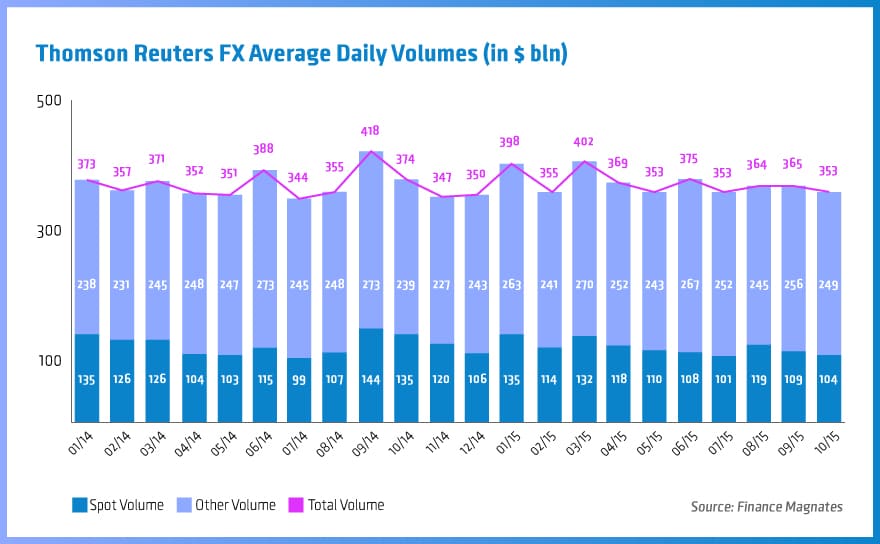The total average daily volume (ADV) of foreign exchange trading across Thomson Reuters platforms in October totalled $353 billion daily. The figure is lower by 3 per cent when compared to the previous month amid stagnant major currency pairs.
In contrast to last October, the figures this year are more modest with the year-on-year numbers contracting by 5.6 per cent. The industry trading volumes numbers are increasingly reliant on major central bank decisions. Since both the Federal Reserve and the ECB have stayed pat in October, the main driver for Volatility , the EUR/USD, has traded in a tight range.
Looking at the breakdown for different contract types, we observe spot trading declining more sharply when compared to the broader metrics to $104 billion daily or down 4.5 per cent. Forwards, Swaps , options and non-deliverable forwards have contracted by 2.7 per cent to $249 billion.

Thomson Reuters FX Average Daily Volumes October 2015
Monetary policy divergence
The month of October started on a vibrant note in terms of volatility on the foreign exchange market. The Federal Reserve December rate hike prospects have increased once more after the last Fed statement last week and the buoyant employment report that followed.
Commenting on prospective foreign exchange market moves, currency strategist at DailyFX Iliya Spivak said: “The markets are now wondering if ECB officials will opt for something relatively restrained or commit to a big-splash gesture. The former could be a broadening the range of QE-eligible assets or extending the existing effort beyond its September 2016 expiry.”
“The latter may take the form of increasing the size of asset purchases from the current €60 billion/month or even moving the deposit rate deeper into negative territory. Rhetoric hinting a preference for stronger action is likely to bode ill for the Euro (and vice versa),” he explained.
The more uncertainty there is, the more likely it is that currency market volatility will increase and lead to higher trading volumes into the year end.


















